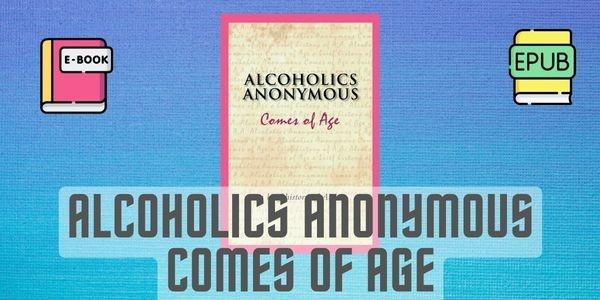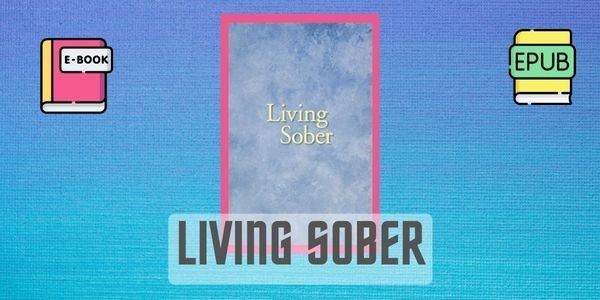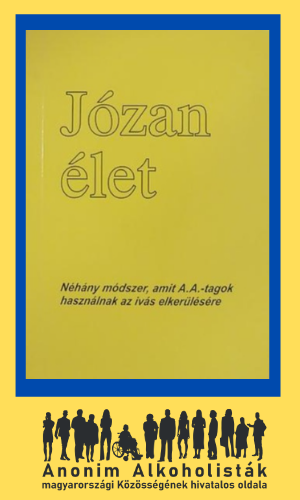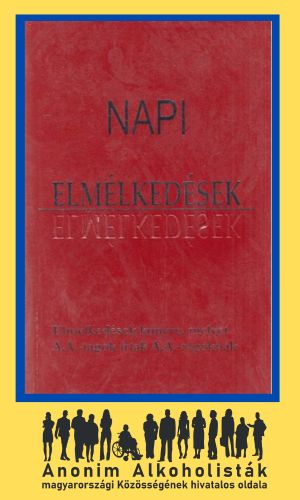Ászáf course 2019.09.20-22.

TRANSFER COURSE in Kiskunfélegyháza!
We invite you to visit us between 20 and 22 September 2019.
for the Asaph course!
If you have been with us before, but have not been on an Asaph course,
if you have enjoyed your stay with us and have already been on an Asaph course,
or you have never been here before and would like to take an Asaph course,
then come and see us!
Invite or send your friends and acquaintances too!
Please also forward the attached invitation, poster and link to them,
or, if you have the opportunity, in your community and parish
advertise/advertise!
The aim of the course is to develop in each of us a "praising heart", which
wants to praise the Lord without ceasing. The course is addressed to all those who
long for a more passionate praise and deeper knowledge of the Lord,
so it is not just for worship leaders or those who serve in worship.
We believe that the few days we spend in praising and worshipping God,
brings personal awakening. This is the beginning of the Holy Spirit on many.
pour out his grace,
and renew His people with power!
From the course topics:
The knowledge of God, the presence of God;
forms of glorification;
freedom in praise;
praise, worship;
to hear and do the voice of God;
our calling is to glorify;
glorification as spiritual warfare;
the life of the glorifier as a sacrifice;
the alliance.
"My heart is ready, O God, my heart is ready to sing and to shout!"
Zsolt 57,8
Testimony:
"I went to the course with the knowledge that I needed to praise, but my heart was full of everything that was not praise, and I wanted to get answers to those. I got much more! The Lord has shown me how to lift my eyes above my mountains of rubbish." Dr. Gyöngyi Halász, Szombathely
Course director:
László Csiszér
Coordinator:
Dr. László Varga
Start:
Friday 20 September, 17.00 -
Finish:
Sunday 22 September, 15.00 -
Location:
HEALTH DOCKS Public Benefit Foundation
ANSWER Addiction Support and Drug Prevention Centre - Conference and Mission Centre
Kiskunfélegyháza, Jókai u. 30. 6100
Eucharist course - Kiskunfélegyháza

Eucharist course - Kiskunfélegyháza
The course is organised in collaboration with the St Ignatius School of Spirituality (http://szentignac.ujevangelizacio.hu/)
The Saint Ignatius School of Spiritual Formation was founded by Javier Silva Castaneda on 1 January 1999 in Guadalajara (Mexico, State of Jalisco). The Archbishop of Guadalajara has given the School ecclesiastical approval. The School is international, serving the whole world.
About the course
Eucharist course (weekend):
A course on spiritual life.
1.- Introduction
2.- Prefigurations in the Scriptures
3- Jesus' sacrifice (out of love, for us, for our sins, our response)
4.- The new covenant - the sacrifice of the church (its effects in our lives)
5.- How to celebrate the Eucharist (liturgy explanation)
6 - Covenant making (commitment: Jesus calls us to live in covenant with him).
Course Director: Beke Tünde-Lídia OSB OBL.
Pastor: József Zsadányi - Szentes, parish priest.
Coordinator: Dr. László Varga
Course date:
Starting Friday, 24 May 2019, 17.00;
End: Sunday 26 May 2019, 15.30 pm.
Location and accommodation:
VÁLASZ Addiction Support and Drug Prevention Centre - Conference and Mission Centre (****)
6100 - Kiskunfélegyháza, Jókai u. 30.
Bring your own scripture, pen, notebook.
Contribution:
The course fee is 7. 500,- HUF, which includes accommodation in a 6-bedded room, on a bed or mattress (you do not need to bring a sleeping bag);
meals (breakfast, lunch, dinner); extras (coffee, chocolate, fruit); and part of the technical costs.
More information:
On weekdays between 16.00 and 17.00, please contact the coordinator on +36 30 380 8535.
How to apply:
until 12 May:
- by handing in your application form AND paying the course fee, which you can do in person at the venue;
- or electronically by sending the application form to This email address is being protected from spambots. You need JavaScript enabled to view it. AND by transferring the course fee to the coordinator's account (OTP 11773360-08252861-00000000). Please make sure to include your name and the name of the course in the communication).
Attention! The application becomes valid upon payment of the participation fee!
Please provide a phone number or email address so that we can give you feedback on the course. Apply if you can attend the whole course.
In memoriam Barna Ferenc Máté OP

In memoriam Barna Ferenc Máté OP
Father Máté is the pastor in charge of the Centre for Addiction Support and Drug Prevention - Conference and Mission Centre, who has been the pastor of the institution since 1 January 2012.
A friendship forged during an evangelism course in Pannonhalma became the basis for a common missionary adventure, with a special focus on working with addicts. We got to know a special person in him, who could approach everyone with openness and interest, and could talk and discuss even the most sensitive issues with unvarnished openness, without pretence, and in accordance with the truth. He has engaged in dialogue with addicted young people, alcoholic elderly, well-dressed intellectuals, the smart and the simple. He was a man of vision, who "saw the invisible", not only in the sense that the Truth he proclaimed was in harmony with his life, but also in the sense that he saw, he saw "what dwelled in man", he saw behind the problems.
When we remember him, we can recall his strong, dominant voice, which everyone knew when he was present. His eternal smile, his serene mood, which did not let him feel embarrassed by anyone or anything he encountered.
His sermons and teachings had a special flavour. Not only because he always put an unexpected twist into the explanation of the simplest, most often heard, most commonly known gospel details, but because anyone who listened to him felt that the experience of life was in harmony with the truth he spoke. Matthew's presence, the fellowship and the time spent with him was liberating, and it was no coincidence that he was loved by all those he met at the institution. His outlook on life, his thinking, and the gospel he preached, fulfilled something of the promise: "Whosoever the Son shall make free shall be free indeed!"
Your memory will be kept alive! Thank you for all that we have received from you. We bid you farewell in the hope of the resurrection!
On behalf of the VÁLASZ team:
Judit Barbara Varga
mission leader
22-24/09 - Asaph course in Kiskunfélegyháza

22-24/09 - Asaph course in Kiskunfélegyháza
The aim of the course is to develop in each of us a "praising heart" that wants to praise the Lord without ceasing. The course is for all those who desire to praise the Lord more passionately and to know Him more deeply, so it is not just for worship leaders and worship ministers. We believe that a few days spent in praising and worshipping God brings personal awakening. This is the beginning of the Holy Spirit pouring out His grace on many and renewing His people with power!
From the course topics:
Knowing God, His presence
Forms of praise
Freedom in praise
Praise, worship
To hear and do the voice of God
Our call to praise
Glorification as spiritual warfare
The life of the glorifier as a sacrifice
The association
"My heart is ready, O God, my heart is ready to sing and to shout!" - Zsolt 57,8
Testimony:
"I went to the course knowing that I needed to praise, but my heart was full of everything that was not praise, and I wanted to get answers to those. I got much more! The Lord showed me to lift up my eyes above my mountains of rubbish." /Dr. Gyöngyi Halász, Szombathely/
Course Director: László Csiszér
Coordinator: Judit Barbara Varga
Pastor: Barna Máté OP
Start: 22 September 2017, Friday 17.00
Closing date: Sunday 24 September 2017, 16.00
Location:
ANSWER Addiction Support and Drug Prevention Centre - Conference and Mission Centre
6100 Kiskunfélegyháza, Jókai u. 30.
Accommodation:
The course is walk-in, but for those who need it, we can provide accommodation in rooms with 6 beds on a bed or mattress. You do NOT need to bring a sleeping bag or bed linen. Please indicate your accommodation needs in advance on the application form!
Contribution:
The course fee is HUF 6 500, which includes part of the technical costs of the course, five meals a day, extras (coffee, chocolate, fruit) and accommodation for those who need it, i.e. full board for 3 days.
Application and contact:
You can register by submitting the application form AND paying the course fee,
+ what you can do in person at the institution,
+ or electronically by sending the application form to This email address is being protected from spambots. You need JavaScript enabled to view it.,
+ or as described on the application page.
You can also transfer the course fee to Diána Nagy's bank account (OTP 11773322-01609231-00000000, please include your name and the name of the course in the message).
Please apply early! Only apply if you can stay present throughout the course!
Please be sure to include a phone number or email address so that we can provide you with feedback on the course. If you don't hear back, ask in the days after the deadline! If you have registered but for some reason you cannot attend, please let us know in time!
More information:
Judit Barbara Varga
Call +36 30 6420903 on weekdays between 18.00 and 21.00 on weekdays, except 28 August and 5 September.
This email address is being protected from spambots. You need JavaScript enabled to view it.
Application deadline: 12 September 2017, Tuesday
Application form: click HERE to download
Bring your own Bible and an open heart!
János course in Kiskunfélegyháza

János course in Kiskunfélegyháza
It is a simple scriptural fact: Jesus chose his apostles from among his disciples, never from the crowd around him.
If this is so, how can I be a disciple?
The aim of the course is to become disciples of Jesus: disciples who want to be like him, the Master, in everything: to think like him, to judge like him, to believe like him, to forgive like him, to pray like him, to evangelize like him, to love like him, to live like him, to die like him.
The greatest honour is to be invited by Jesus to be his disciple, because he does not teach doctrine, but teaches us to live: to live with him, to be in intimate relationship with him, like his beloved disciple John, who was able to lay his head on his bosom.
From the topics of the course
Jesus' plan for discipleship;
The relationship between Master and disciple;
A day with Jesus;
The six relationships of the disciple;
The discipleship method of Jesus;
Our mission is...
It is enough for a disciple to be like his Master. (Mt 10,25)
Course director:
Dr. László Varga
Coordinator:
Lívia Szalkainé Ferencsik
Other team members:
Pastor: Barna Máté OP
Start:
Saturday 24 June 2017, 17.00
Finish:
1 July 2017, Saturday 17.00
Location:
ANSWER Addiction Support and Drug Prevention Centre - Conference and Mission Centre
6100 Kiskunfélegyháza, Jókai u. 30.
Accommodation:
The course is residential, we can provide accommodation in rooms with 6 beds (bring a sleeping bag only). Please indicate your accommodation needs on the application form!
Contribution:
The course contribution is 15 000 HUF, which includes part of the technical costs of the course, 5 meals a day, extras (coffee, chocolate, fruit), accommodation, i.e. full board for 8 days.
More information:
On weekdays between 10.00 and 12.00 and after 20.00, please contact Lívia Ferencsik Szalkain at + 36/30 964 44 03.
Application deadline:
Saturday, 10 June 2017
Index number/ID:
EN-17-24
Emmaus course in Kiskunfélegyháza

Emmaus course in Kiskunfélegyháza
It is from meeting God and getting to know him that a happy life flows.
God can be known. He is not a silent person, but a talkative person with something to say. A life-giving message. Do you hear God speaking to you? Jesus is the word of God to us. The Emmaus Course is an introduction to the Word of God - the Word of God - to give us life by reading, listening, following, living it.
In this course, we will walk the journey from Jerusalem to Emmaus, so that we too may have our hearts set aflame by the fire of God's Word.
This course will change our relationship with the Word. If you don't read daily, or if you feel you don't understand what you read, or if you don't know the Word well enough, come! We are waiting for you! The Word of God can set your heart on fire in this course, because it carries God.
From the course topics:
The Emmaus Road
Seven images of the Word
The seven effects of the Word
Covenanting with the Word
Synagogue of Israel
Emmaus Eucharist
Speak, O Lord, let your servant hear. - 1 Samuel 3,10
Course director:
Dr. László Varga
Coordinator:
Ditta Nagy Sominé
Other team members:
Pastor: Barna Máté OP
Start:
Friday 28 April 2017, 17.00
Finish:
30 April 2017, Sunday 16.00 -
Location:
ANSWER Addiction Support and Drug Prevention Centre - Conference and Mission Centre
6100 Kiskunfélegyháza, Jókai u. 30.
Accommodation:
The course is residential, for locals, we provide free accommodation in rooms with 6 beds (bring a sleeping bag only). Please indicate your accommodation needs in advance on the application form!
Contribution:
The contribution is HUF 5 500, which includes part of the technical costs of the course, five meals a day, extras (coffee, chocolate, fruit), accommodation if required, i.e. full board for 3 days.
Application deadline:
Sunday, 16 April 2017
Bring it with you:
full Scripture and your open heart
More information:
For more information, contact the coordinator at This email address is being protected from spambots. You need JavaScript enabled to view it., or call +36 70 4539018 on weekdays, mainly between 10.00 and 14.00.
Index number/ID:
EN-17-23
03/03/2017 Changing world - changing materials presentation

03/03/2017 Changing world - changing materials presentation
We cordially invite you to an open lecture entitled "Changing world - changing materials" with Gábor Gönczi, the professional head of EGÉSZSÉGDOKK.
Themes planned:
The emergence of new psychoactive substances in society.
Easy access to new agents.
Psychoactive drugs are a drug of abuse among minors.
The mechanisms of addiction.
The relationship between family socialisation and drug dependence.
Date: 03. 03. 2017 (Friday) 18:00
Venue: House of Generations, Gárdony, Gárdonyi G. u. 1.
Ex-drug addicts have been through hell

Ex-drug addicts have been through hell
FEOL.hu - Once addicted to drugs, they now help addicts who want to become sober.
The Health Dock Drug Outpatient Clinic also employs people who were regular drug users a few years ago. Some work there as volunteers, others full-time.
Vilmos Bozóki's job consists of welcoming clients, talking to them a little, and doing the housework. The 25-year-old first tried mind-altering drugs at the age of 12.
- What you need to know is that there are three phases of substance abuse: the "party is on", the "trouble is on" and the "I'm done" phase. It took me 11 years to get fed up. Over the years I have lost everything, even my family. At the very end I was homeless. I did not take myself into account. And to survive, I stole, cheated and lied", says Vilmos, who finally went to rehab at the age of 23:
- My case was interesting because I first asked for help without wanting to stop using drugs completely. I thought so: Okay, I'll go to rehab, put on a few pounds, and keep doing what I was doing. But when I got the right help, I realised it was better to stay sober.
Vilmos Bozóki and Frigyes Fülöp went through hell, but managed to get back on their feet. The young men are currently working at the Health Dock Drug Outpatient Clinic in Székesfehérvár.
According to Vilmos, it is much better when addicts can consult former drug users instead of doctors and psychologists. This makes identification much easier, and the now sober advisers are also more credible in the eyes of those who need help. Frigyes Fülöp, who works as a therapy worker at the drug outpatient clinic, feels the same way. It provides individual counselling, drug prevention and school lectures, as well as dealing with subsidised housing for people who have quit drugs. In fact, he even played a huge role in the beautification of the drug outpatient clinic. Frigyes first tried speed when he was 13 years old. The former addict was interested in drugs and his parents worked a lot.
- There came a break in my life. Three guys in my group of friends killed a man. Naturally, I was taken to the police, but it soon became clear that I had nothing to do with it. After I got out of the police station, the situation became even worse. I became a heroin addict. I managed to keep it a secret at home for a while, but it became a police matter, so my parents found out. At first my mum and dad tried to help me, but they didn't succeed. A popular doctor advised them to throw me out of their home so I would repent my sins, but they didn't. I moved to Budapest to live with a dealer and did drugs for 15 years.
Frederick got into trouble several times, committed crimes, spent three years in prison, and eventually became homeless himself. In the last 3-4 years of his addiction, he has been trying to consciously stop using. He has been in several rehabilitation centres, but there were also medical institutions where he was turned away because he was a heroin addict.
- I had a lot of negatives, for example towards the end of my addiction I broke the syringe in my right hand. I almost had to have my arm cut off, so I had five or six operations. After I got clean, I was haunted by my old crimes, my health deteriorated, my kidneys shut down, my stomach bled. I am still paying one major debt to this day. "You can't just undo 15 years of drugs," says Frigyes, who is now doing well.
Drug addiction is a complex issue
According to Zsolt Balcsik-Tamás, President of the Egészségdokk Public Benefit Foundation, addiction is a complex set of problems that affects the whole existence of the addict, i.e. health, psychological state and social relations, in addition to the financial ones. To really help patients, there must be an expert for each part of the problem. In addition to doctors, psychologists, legal advisers and social workers, former addicts can also work with clients.
Written by: Laci Patrícia
Photo by Viktor Koppán
Source: FEOL.hu
You carry the cross of addiction for the rest of your life

You carry the cross of addiction for the rest of your life
FEOL.hu - How do you get to the point where heroin is your only friend, and what makes you find your way back to real life? - The brutally honest interviews in the documentary We're Rebuilding answer these questions, among others.
Attila Ferecz is thirty-three years old, newly married, working in an advertising agency. Gábor Gönczi is a married father of two children, head of the Health Dock Drug Outpatient Clinic. Tímea Kiss-Lukasik has turned forty-three and is currently a member of the Stop Group - they are like everyone else: they have families, loved ones and jobs. But the road they have taken to get here is bumpier than most. Together with Gábor Wenhardt, in his twenties, and Péter Józsa, in his thirties, they have all been through hell. They were drug addicts.
Or, as Kristóf Novák, the director and creator of the documentary film We are being built, says, they still are. Because there is no cure, the best the addict can do is to stop using drugs.
- The aim of the film We are building up is multifaceted. On the one hand, I wanted to tell the drug users who are still active today that there is no situation from which they cannot recover. On the other hand, the interviews have the unconcealed intention of shading the picture of addicts. Public perceptions of drug use are very extreme. You could say that society stigmatises drug users. I also hope that the film can be used for preventive purposes, because the truth is, in my opinion, the most we can show a teenager," explains Kristóf, who was surprised himself during the making of the film how honestly his interviewees talk about the past and share their recovery stories. Slips, no embellishments.
Tímea - this enlightened, mature woman - confesses to manipulating men with sex to get her drugs.
Gábor Gönczi embezzled, stole and robbed when he had to. Another tried to break into his friend's flat, under the influence of drugs, because of a fantasy. They have caused accidents, unwanted pregnancies and accumulated debts. Some were held at gunpoint, others spent the night in a stairwell, making a bed out of doormats, knowing that the only companion they had left in life was heroin.
The reasons vary: some people's parents were alcoholics, others were driven to the depths by a hunger for love, but there are also people who had everything free. And, of course, there is also curiosity. Most have followed a traditional drug career, progressing gradually from lighter drugs to hard mind-altering drugs.
- In one hand I was carrying a tray of shots, in the other I had pills. After an evening like that, I was taken straight from detox to my mother's. It was the first few hours in months that I had nothing inside me. I begged him to help me, crying - Gábor Wenhardt confesses in the film about one of his awakenings.
The first clear weeks were hard for everyone. Some people could not sleep and were plagued by epileptic fits. Withdrawal symptoms are, as they say, always testing.
- Recovering addicts face their past every day. Some people's whole lives revolve around this, those who have been clean for 10-20 years spend only a few minutes or hours of their twenty-four to reflect. They are constantly being built.
But how? They tell us about this too. Their narratives show that the risk of relapse is high even months after withdrawal.
- Information can be passed on quickly. To convey value, to teach people self-knowledge - that takes at least a year - explains Gábor Gönczi, who today works with his fellow migrants as a specialist.
Even after this, the chances of relapse are not low: you have to go back to a completely different environment to start afresh, not to be reminded of the drug.
Some people also draw strength from faith. In fact, during therapy, when they felt like nobody, it finally helped them to hold on to the idea that there is someone who can forgive, God.
- The film debuted last week and since then I've received a lot of positive feedback. The only thing the audience reacted strangely to was the question of faith. But you cannot leave this out of the story. For some of them, it is still a source of strength, part of their ongoing recovery," says Kristóf, who hopes that the film will reach all those it can help. Whether it is in recovery or in making a responsible decision when they are first offered drugs.
Written by: Lilla Sebestyén
Source: FEOL.hu
Suffer-Live! - Drug treatment home in Ráckeresztúr (video)

Suffer-Live! - Drug treatment home in Ráckeresztúr (video)
Ráckeresztúr... One of the first drug treatment homes in the country is here. Where young men can get professional and human help to break free from drug addiction.

















































